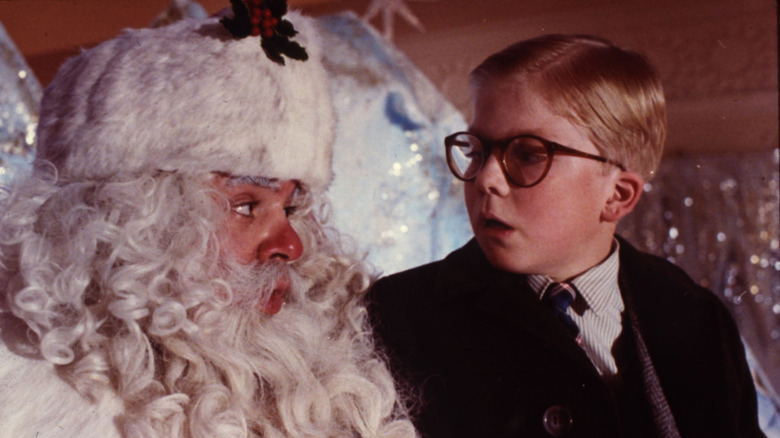
Given that 1983's "A Christmas Story" only continues to grow in popularity with each passing year, one of my favorite party tricks to use when a relative or friend is in the throes of TNT's annual 24-hour marathon of the heartwarming holiday comedy is explain how it and 1974's "Black Christmas" — a bitter, bleak, and uncompromising horror classic — were made by the same director, Bob Clark.
It's a fun bit of trivia because both movies are so diametrically opposed in tone, with each exploring very different facets of Christmastime. Yet when examined closely, "A Christmas Story" and "Black Christmas" have a surprising amount in common, with the films containing a streak of knowing cynicism when it comes to the trappings of the holiday.
As it turns out, this isn't by coincidence. While Clark was never really an auteur director, careening as he did between numerous genres and budgets, his desire to make a film from the works of Jean Shepherd emerged right at the beginning of his career, making "Black Christmas" a stepping stone on the way to Clark adapting Shepherd's works into "A Christmas Story."
Shepherd Climbs Metaphorically Into Clark's Attic
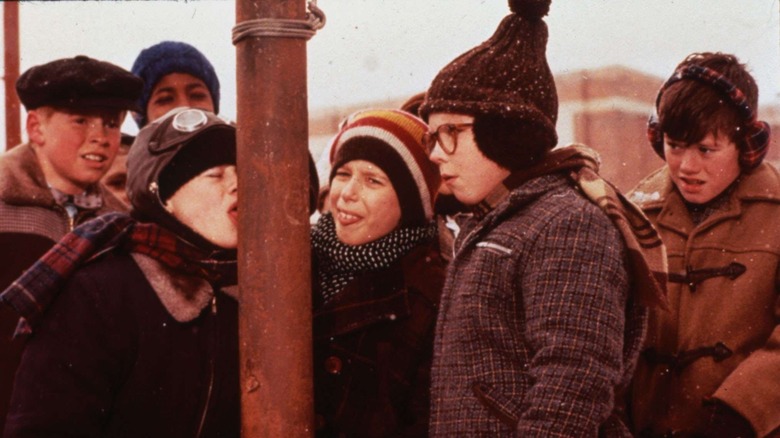
In the late 1960s, Bob Clark was a former theatre student-turned-aspiring filmmaker with two short films to his name, "The Emperor's New Clothes" and "She-Man." He was searching for the material that could become his first feature film when, on one fateful night, according to Caseen Gaines' 2013 book "A Christmas Story: Behind the Scenes of a Holiday Classic," he heard Jean Shepherd's voice on his car radio.
Shepherd was a staple of broadcast radio since the 1940s and, by the late '60s, had found a home on the AM station WOR. On his way to pick up a date for the evening, Clark became enraptured by Shepherd's broadcast (which, according to Clark's commentary on the "Christmas Story" DVD, was of the story entitled "Flick's Tongue"). As Clark recalled, "I was so enamored with his offhand, flippant kind of deceptively wry and witty comments."
Clark was so taken with the satiric storyteller that he arrived at his date's house nearly an hour late. As he told Gaines, "I decided at that moment that I was going to make a movie of Jean's work."
Clark Gets Stuck, And Switches To Horror
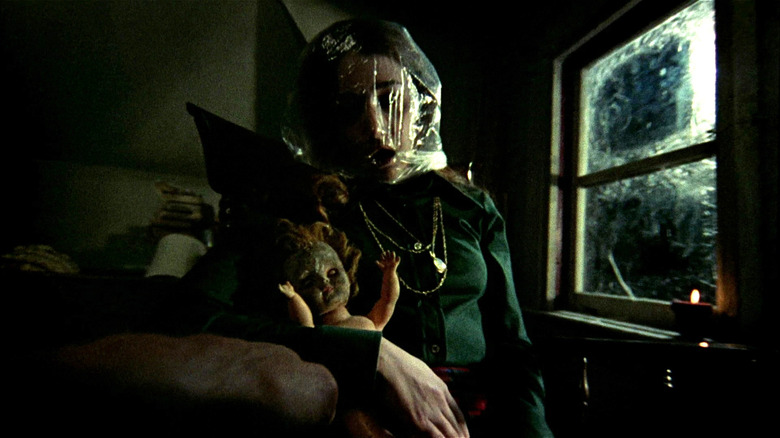
After discovering Shepherd's stories, Clark came up with the idea for "A Christmas Story." According to Gaines, he hoped it "would be his first feature film, and strongly believing it would be a success, he began work on a script even before gaining Shep's participation and approval." However, the young director soon discovered that mounting a full-length feature was no simple task. Before he could get "A Christmas Story" underway, he teamed up with screenwriter and makeup artist Alan Ormsby, and the two made a pair of low-budget horror movies, "Children Shouldn't Play With Dead Things" and "Deathdream," that made sly comments on such topical issues as the hippie movement and the Vietnam war.
Based on the small success of those films and thanks to a new tax shelter program, Clark left Florida and moved to Canada. At the same time, Canadian writer Roy Moore was working on a script inspired by both the urban legend of "The Babysitter and the Man Upstairs" and a series of murders in Montreal that had occurred during the holiday season of 1943. Eventually, that script found its way to Clark, who rewrote it and made "Black Christmas" (a cunning title riffing on the famous Irving Berlin tune from the early '40s, "White Christmas").
Clark Double Dog Dares Shepherd To Let Him Make A Movie
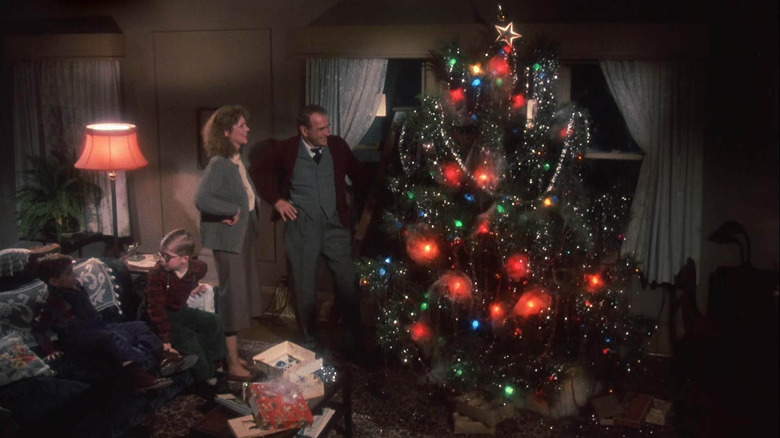
With "Black Christmas," Clark's career had finally taken off properly. As Geoff Pevere observed in 2017, the film "was a domestic box office hit: a Canadian-made movie Canadians actually paid to see." Clark followed up "Black Christmas" with films that had all-star casts, such as "Murder by Decree" and other big hits like "Porky's." Yet "A Christmas Story" was never far from his mind, and according to Gaines, "Clark reached out to Jean with the offer to help bring his stories to film" during this period of the filmmaker's success.
By this point, Shepherd had graduated to television, hosting a PBS series entitled "Jean Shepherd's America," and was apparently ready to transition to the silver screen after Clark's proposal. The producer of the "America" series, Fred Barzyk, recalled how Clark "came to Shepherd and said, 'I want to do A Christmas Story,' and for Shepherd this was big because it was going to be a movie. Maybe at long last people would recognize Shepherd as an important American icon. So he cut off all things with television [...] He had moved on."
When "A Christmas Story" was released just before Thanksgiving of 1983, the dual dream of Clark and Shepherd had finally been realized.
A Bob Clark Christmas Double Feature
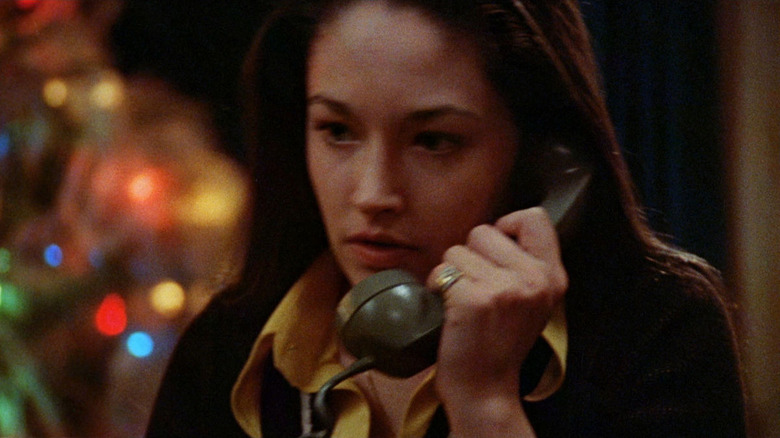
While it's unlikely that a repertory theater would program "Black Christmas" and "A Christmas Story" back-to-back, it's a double feature I encourage you to try out at home. If you do, you'll likely see some intriguing parallels, callbacks, and other elements that tie these otherwise disparate films together.
For instance, both films have a symmetrical structure, with "Black Christmas" and "A Christmas Story" beginning and ending with shots of the central home of each movie. Canadian character actor Les Carlson appears in both films, as a telephone employee in the former and a Christmas tree salesman in the latter. The horrifying, audio-only phone calls the sorority girls are plagued with in "Black Christmas" are echoed in the call Ralphie's mother places to Schwartz's mother when Ralphie accuses his friend of teaching him "the word." And Ralphie's surreal visit to Santa is enhanced by POV shots using a distorted lens, much like "Black Christmas" depicts its unseen killer's point of view.
So whether you wish to revel in the dread of the onset of winter with some progressive women or reminisce within the warm glow of boyhood nostalgia, Bob Clark is truly your man for all Christmas seasons.
Read this next: The 27 Best Christmas Horror Movies Ranked
The post Black Christmas Was A Stepping Stone On The Way To Creating A Christmas Story appeared first on /Film.
0 Commentaires